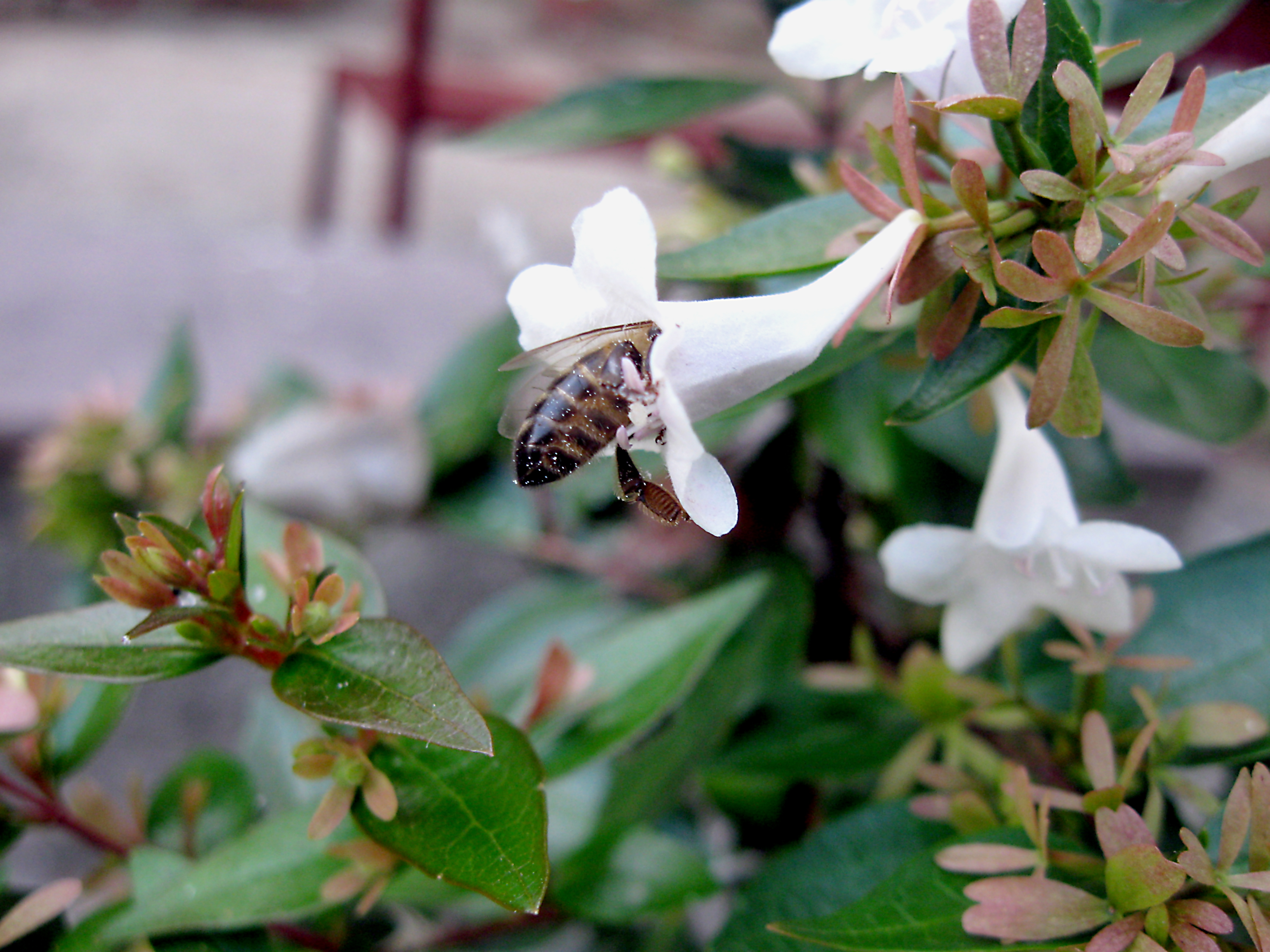Every day we smell thousands of different things and usually we don’t pay much attention to them unless they are somehow noteworthy – either extremely pleasing or repugnant.
However, few smells are as etched in stone as odors which remind us of a passionate, blinding love and the heady, sublime rush that comes along with it. Even scents of places we associate with it can bring us back. Fragrance is breathtakingly commanding and embodies expressions of desire, attraction and seduction. Through cultural as well as biological mechanisms, our noses and brain are intimately connected.
THE POWER OF SCENT
The power of scent isn’t only linked to romantic or erotic memories. It can be associated with trauma, youth, grief, casual acquaintances or close family members. Smell can bring back pictures as sharp as photographs. My father, who passed away in 2007 after battling a long illness, always wore Old Spice cologne. To this day I immediately think of him whenever I catch a whiff of it.
The perfume industry fully understands this. They have long harnessed the persuasive abilities of scent to engage us in the fantasy of seduction and the grip of nostalgia. We are – often unconsciously – drawn in like bees to a flower.
In Perfume: The Story of a Murderer, Patrick Suskind describes the unstoppable capabilities of scent. “Odors have a power of persuasion stronger than that of words, appearances, emotions, or will. The persuasive power of an odor cannot be fended off, it enters into us like breath into our lungs, it fills us up, imbues us totally. There is no remedy for it.”
Rather than having hardwired preferences for smells, our brain is enabled to learn powerful emotional  responses to them. Our response to smells is partly learned and partly genetic. From birth we have strong likes and dislikes and as we age our experiences add and modify these associations and memories. It’s this collection of stored information, sometimes called a “smell bank”, that determines whether or not we like a fragrance.
responses to them. Our response to smells is partly learned and partly genetic. From birth we have strong likes and dislikes and as we age our experiences add and modify these associations and memories. It’s this collection of stored information, sometimes called a “smell bank”, that determines whether or not we like a fragrance.
All during our life we acquire emotional meaning to odors through our experience but our first experiences are key and can be very difficult to undo. You catch a whiff of pumpkin  pie or fresh cut grass and suddenly you’re caught in a flurry of vivid memories from your childhood.
pie or fresh cut grass and suddenly you’re caught in a flurry of vivid memories from your childhood.
The act of smelling something, anything, is remarkably like the act of thinking.
Immediately at the moment of perception, you can feel the mind going to work, sending the odor around from place to place, setting off complex repertories through the brain, polling one center after another for signs of recognition, for old memories and old connection. – Lewis Thomas
We know that men’s sweat smell raises women’s cortisol levels, which is interesting because that’s a “fight or flight” response. It’s also true that women who live together, as I remember from my college dorm days, synchronize their menstrual cycles through unconscious smell cues. At birth a baby is drawn to the smell of breast milk, and by the second week a baby can tell the difference between the scent of his mother’s breast milk from another mom’s milk.
flight” response. It’s also true that women who live together, as I remember from my college dorm days, synchronize their menstrual cycles through unconscious smell cues. At birth a baby is drawn to the smell of breast milk, and by the second week a baby can tell the difference between the scent of his mother’s breast milk from another mom’s milk.
Years ago, U.S. military researchers set out to create a universal stink bomb – a smell so awful that it would repel any unruly crowd everywhere in the world – and found that it was virtually impossible. No matter how offensive an odor was to one person, the smell would be perceived as pleasing to another.
THE SCIENCE OF SMELL
Olfaction, or the sense of smell, didn’t gain much scientific attention until fairly recently. In the past 20 years there has been a spike in research, especially at the molecular level.
Whether you have a big honker or a cute button, the process of smell works something like this:
- Vaporized odor molecules floating in the air reach the nostrils and dissolve in the mucus on the roof of each nostril.
- Underneath the mucus, in the olfactory epithelium,
specialized receptor cells called olfactory receptor neurons detect the odor. These neurons can detect thousands of different odors.
- The olfactory receptor neurons transmit the information to the olfactory bulbs, which are located in the back of the nose.
- The olfactory bulbs have sensory receptors that are actually part of the brain and send messages to either the primitive brain centers (responsible for emotions and memories) or “higher” centers (the neo-cortex, responsible for higher thought).
- These brain centers perceive odors to remind of people, places or events that are associated with the odor.

So while we do understand the way smell works, there is quite a lot we still haven’t figured out. Even after extensive testing of the genetics, biochemistry, and neuropsychology of olfaction, we still don’t know know for sure how the molecular composition of an odor is translated into the psychological perception of “aha, the smell of a rose” or “aha the smell of fire”.
In interesting article by Brown University psychologist Rachel S. Herz, Ph.D. (“Ah Sweet Skunk! Why We Like or Dislike What We Smell”) argues that our olfactory likes and dislikes are learned throughout life. Contrary to most people’s perception of the smell of skunk as “eww”, she actually likes the smell. She attributes this liking to having smelled it for the first time on a lovely summer’s day and hearing her mother say, “Isn’t that smell nice?”. Ever since then, the smell of skunk was appealing to her.
WHY CAN’T I SMELL IT?
The inability to smell, called anosmia, isn’t unusual. In the U.S. the rate typically given is one in a hundred but some think it may even be higher than that. The most common way that people become anosmic is through injury or illness. A car accident or sports injury involving a sharp blow to the head might shove the nasal passageways out of their normal alignment. Also common is when people temporarily lose their sense of smell due to an upper respiratory sinus infection or even by having a really bad cold.
that people become anosmic is through injury or illness. A car accident or sports injury involving a sharp blow to the head might shove the nasal passageways out of their normal alignment. Also common is when people temporarily lose their sense of smell due to an upper respiratory sinus infection or even by having a really bad cold.
Some people have specific anosmias; they aren’t able to perceive one type of smell but otherwise their sense of smell is normal. Most of this type of anosmia is related to steroidal musk compounds and seems to be genetic.
The type of specific anosmia that has been studied most extensively is to the compound androstenone. Almost half of us seem to have a specific anosmia to this compound and of those who can smell it, it is perceived quite differently. Some describe it as a sweet musky floral odor and others describe it as an unpleasant urine-like odor.
SMELLING AROUND THE WORLD
Throughout history, culture has played a big role in what smells good to us, as evidenced in perfume preferences.
The French love their dark, spicy scents such as Guerlain Shalimar and Yves Saint Laurent Opium. As you travel across southern Europe, Mediterranean freshness abounds, where citrus and neroli are typically found. The British are fond of  their English-garden floral notes of rose, lily of the valley and violet, as evidenced by many popular perfumes by Penhaligon’s.
their English-garden floral notes of rose, lily of the valley and violet, as evidenced by many popular perfumes by Penhaligon’s.
In the Middle East, fragrance is so much a part of the culture that residents rarely go a day without it. Fragrance is often used as a way to anoint yourself before prayer but it’s also used as a personal  statement. Smoldering incense, earthy vetiver and sensuous oud are extremely popular and there’s also a huge love of layering. Underneath the burkas there’s a lot going on.
statement. Smoldering incense, earthy vetiver and sensuous oud are extremely popular and there’s also a huge love of layering. Underneath the burkas there’s a lot going on.
In India, base notes of sandalwood and patchouli are frequently paired with sensuous floral notes like jasmine.
Preferences in China tend to correlate with the climate of its many different regions. Woody scents are popular in dry  Beijing and fruity florals do better in warmer Shanghai.
Beijing and fruity florals do better in warmer Shanghai.
The Japanese traditionally have loved delicate well-balanced fragrances which are discreet, such as Issey Miyake’s L’Eau d’Issey. This seems to be changing as younger buyers are starting to embrace heavier,  earthy scents once considered taboo.
earthy scents once considered taboo.
Here in the U.S., where we are known for our insatiable appetites, gourmand notes like vanilla and sweet, fruity notes like strawberry are prevalent. We’ve also tended to favor fresh and clean smelling scents such as CK One. This is changing with the rise in niche and indie perfume brands. Woody scents appear to be on the rise as well.
The world is getting smaller, figuratively speaking, and perfume tastes increasingly reflect this reality. What’s coming up next in perfume trends we’ll just have to wait and see. Perfumery is full of surprises.
Until the next time,





This is a great blog and well written. My father’s fragrance, like yours, was Old Spice and when I catch a whiff of it, all I can think of is my dad. Smells can turn us on and turn us off and there’s nothing like the smell of a newborn baby.
Unfortunately, we tend to lose our sense of smell in our older years.
Karen
Hi Karen,
Some loss of smell and taste are supposed to be expected as we enter our senior years. I’m praying to be an exception to this. Bring on the wrinkles but let me keep my brain and sense of smell is my battle cry:) I know what you mean about the amazing smell of a newborn. It’s incredible!
Cheers,
Erica
I have a perfume I’d always wear when my husband and I were first dating. I still have that perfume but only use it every once in a while and whenever I put it on, my husband says he gets the butterflies because it reminds him of when we were dating and the feelings that were associated with that excitement. I have always had a stronger sense of smell than others (or maybe just my husband) and now that I’m pregnant I feel like my sense of smell has gotten stronger which is good and bad sometimes haha. Thanks for your article it was a great read!
Hey Kelli,
Congrats on your pregnancy! I also experienced a heightened sense of smell when I was pregnant and I found many smells to be overwhelming. Probably it’s those overactive hormones to blame. After the baby arrives, and as soon you and your husband can manage a date night, make sure you spritz on that fragrance that gives your husband the butterflies:)
Thanks for dropping by and best wishes to you and your future new family member,
Erica
What a unique idea for a website – nicely done. Great graphics on white background really makes the content stand out. Consistent with blog posts – which is a definite plus in my book. “LOVE IS BLIND BUT IT DOES HAVE A NOSE” is entertaining reading, very pleasant and informative. This is a lady who knows and loves her subject manner. While I wish that she had installed some sort of grid to display past posts on her FRAGRANCE REVIEWS & SHOPPING page – the actual posts more than made up for this. Great job – a site definitely worth the time to follow.
Steve
Hi Steve,
Thanks for stopping by to comment. Suggestions are always welcome and appreciated. This is very much a work in progress still so thank you:)
Hope to find you back here soon:)
Erica